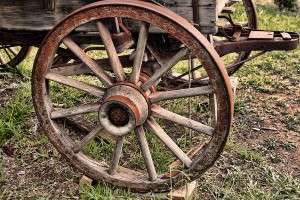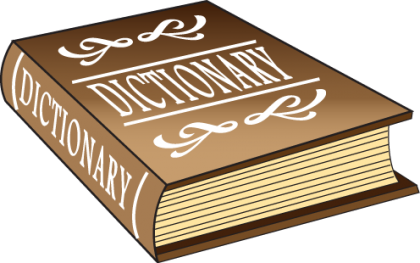Why Is the Best Hand Called the Nuts?
Years ago, I researched the origins of various poker terms for a now-defunct website. It wasn’t always the most thrilling work, but once in a while, I would come across an entertaining story that would prompt me to say in my Dana Carvey-as-Johnny Carson voice, “I did not know that.” In a fun change of pace, I thought I would share a few of my favorite poker term origins with you on this fine Wednesday.
Button
Definition: the dealer in the hand, or if there is a permanent dealer, the last person to act in a hand. Specifically for the purposes of this article, the button to which I will be referring is the actual physical marker that indicates which player is the button.
We are all used to that ubiquitous piece of poker equipment, the white disc with the word “DEALER” engraved on it in black, that sits in front of the player on the button in a poker game. The button has the button. But why is it called the button?
It goes back to the mid-1800’s, when most gamblers took every opportunity they could to cheat. Think stereotypical Wild West saloon poker games where all the prospectors and cowboys are eyeing each other suspiciously and have one hand on their six-shooters underneath the table. To prevent cheating, the players would take turns dealing. And to keep track of whose turn it was to deal, a marker would be placed in front of the dealer, just like it is today.
Some of the first markers were knives, often with handles carved from buck’s horn, which is why the button is sometimes called the “buck.” This is where the term “pass the buck” comes from, as players who did not wish to deal would literally pass the buck to the next player. Naturally, the phrase “the buck stops here” is derived from this, as well.
As time went on and people weren’t carrying around knives all the time, small discs were often used to mark the dealer. Those discs eventually began to be called “buttons,” for obvious reasons.
River
Definition: the final card dealt in a poker hand.
The exact origin of the term “river” is unknown, but one story I read is totally silly, so will proclaim it the official origin story. In the 1800’s, Mississippi riverboats were popular venues for poker games. Despite efforts to curtail cheating, it was an inevitable part of the game. As one might guess (hopefully you have to guess and have not experienced it), a common way to cheat was for the dealer to purposely deal a final community card that would help his own hand. Legend has it that when the cheater was caught, he would be thrown overboard into the Mississippi River, hence the final card earning the name the “river” card.
Nuts
Definition: the best possible hand anyone can have at the current point in the game, based on the community cards that have been dealt.
This is my favorite. First of all, who doesn’t have fun saying the word “nuts?” But the story behind the term is much more than it just being a silly word to use.
Similar to “river,” there is no definitive story, but the most widely accepted one goes back to, you guessed it, the Wild West. You’ve seen all the movies with ridiculous poker games – the ones with cowboys raising and re-raising each other. In our more civilized games today, if someone is out of money and wants to stay in the hand, he is just all-in and the other players create a side pot. But you know how it goes in those movies: a guy runs out of chips, so he puts his pocket watch in the pot. Then his gun. Then the deed to his ranch. Then his wife. And for some reason, he always has the actual deed in his pocket.
 These things did actually happen. Poker players would put up something of great value, perhaps a horse or yes, even property, to continue in a game. There was some fear, though, especially with an unknown player, that the person might try to bolt if he lost and welch on the bet. In order to prevent this, players would sometimes be required to remove the nuts from the wheels of their wagon (remember this was the Wild West) and put them on the table so that their possible escape was made that much more difficult. A wagon with no wheels isn’t much of a getaway vehicle.
These things did actually happen. Poker players would put up something of great value, perhaps a horse or yes, even property, to continue in a game. There was some fear, though, especially with an unknown player, that the person might try to bolt if he lost and welch on the bet. In order to prevent this, players would sometimes be required to remove the nuts from the wheels of their wagon (remember this was the Wild West) and put them on the table so that their possible escape was made that much more difficult. A wagon with no wheels isn’t much of a getaway vehicle.
Thus, the term “nuts” was adopted to indicate a hand that a player had so much confidence in that he didn’t hesitate to cripple his chances of fleeing. If someone literally put his wagon’s nuts on the table, you knew he meant business and probably had the best hand. Either that, he had one gigantic…pair.



















COMMENTS